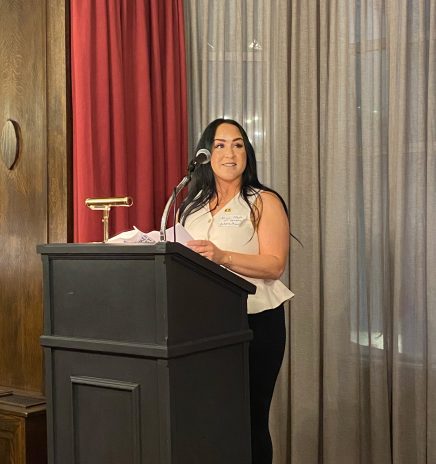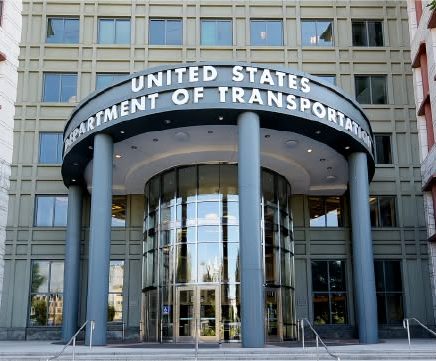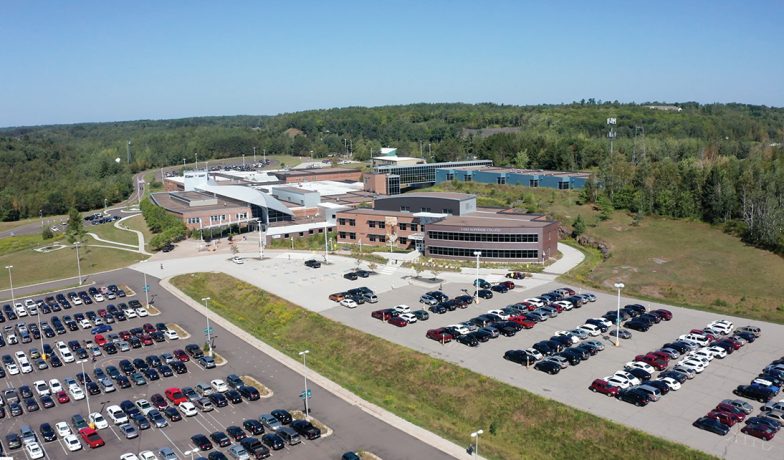MarAd Centers of Excellence Program Expands
MarAd published a solicitation for applications in the Federal Register on July 20, 2023, for eligible and qualified training entities, under the Fiscal Year 2023 National Defense Authorization Act. The approved entities include 38 postsecondary educational institutions; one postsecondary vocational institution; four non-profit structured experiential training programs; four registered apprenticeship sponsors; three maritime training centers previously designated; and four organizations containing a combination of the above-mentioned entities.
Building Partnerships
Among the new designees is the Minnesota State Domestic Maritime Workforce Consortium (MSDMWC), a collaborative effort between Lake Superior College, Saint Paul College and Minnesota State College Southeast. “Lake Superior College is very pleased for this opportunity to contribute to the training and education of maritime workers,” said Lake Superior College president Patricia Rogers.
“Shipping on the Great Lakes and the Mississippi River remains a key ingredient to the state’s economy and prosperity of individuals working on the ports and harbors.”
“Designation as a Center of Excellence will help us leverage our collective strengths and resources to meet the demanding workforce needs of the maritime ports in Minnesota,” said Marsha Danielson, president of Minnesota State College Southeast. “We look forward to working together in partnership with our local port authorities to advance maritime workforce training and education to further strengthen the Minnesota economy.”
The average age of U.S. mariners currently stands close to 50, according to Chris Wahler, director of maritime labor and training with MarAd. Concern about the need to replace the aging population of mariners, as well as in shipyards and other shore-based support jobs, is long-standing.
The roots of the Centers of Excellence program go back to a joint report issued by the U.S. Department of Transportation, Department of Labor and Department of Education in 2015 on workforce development, including in the maritime sphere.
At that time, Dr. Shashi Kumar, deputy associate administrator and national coordinator for maritime education and training at MarAd, along with industry stakeholders, had been concerned that not enough attention was being paid to the need to train future brown-water and “green-water” (coastal) mariners. The states of Texas and Louisiana, with sizable brown-water and green-water economies, were especially interested.
“Awareness is growing of the great-paying opportunities on the water and in related occupations,” Wahler said. “These Centers of Excellence do a great job of getting the word out. Young men and women who pursue these pathways can make several times what their college-degreed peers are making and can pay off debts and contemplate buying houses in their 20s—something increasingly out of reach for many young people.”
Building Connections
Community colleges are reaching down to K-12 schools to let interested young people know about the alternative pathways.
Among the related jobs are those in smaller repair shipyards on inland waterways. Many of these offer steadier work and more reliable career paths than the larger ones more dependent on government contracts, which can have employment peaks and valleys according to the vagaries of appropriations by Congress.
“Our country depends on a highly skilled mariner workforce to strengthen both our economy and our national security,” U.S. Transportation Secretary Pete Buttigieg said. “The 32 Centers of Excellence we’re designating today will promote training opportunities outside of traditional four-year degree programs and will bring more Americans into these great maritime careers.”
“Our Centers of Excellence designations recognize the high standards of maritime education and training provided by these organizations,” Maritime Administrator Ann Phillips said. “These institutions play a critical role in providing domestic mariners with the expertise needed to best serve the maritime industry.”
The participating institutions are responsible for getting the word out and drumming up interest. “These institutions, whether they are community colleges or state maritime academies, are very agile and work closely with the local community and its needs. They can create a new course much more quickly than a traditional college can,” said Kumar. “Getting a Center of Excellence designation can raise the profile of a maritime department within the institution. The programs and institutions designated as Maritime Centers of Excellence tend to have a more diverse pool of students than traditional degree-granting institutions,” he added.
Being designated a Center of Excellence opens up federal grant opportunities. The CoE program itself is authorized by Congress and includes authorization for a supporting grant program; if and when it is funded, it may be able to directly offer grants.
In the meantime, the program encourages participating institutions to network and share ideas and resources. Gerard Wall, CoE Program Manager, noted that 2021 and 2024 Center of Excellence The College of the Florida Keys in Key West, Florida recently opened a maritime high school preparing the next generation for careers in maritime. Kumar predicts that CoEs will continue to build their own linkages with high schools and other post-secondary educational institutions.
“Maritime education is relatively more expensive compared to the more traditional career tracks,” noted Kumar—but very necessary to supporting our Jones Act and International fleet, and our ongoing need for a maritime workforce. “The future is not far off when we will have a Maritime Center of Excellence in every state.”
For additional information, a full list of designees and a searchable interactive map identifying designee locations please visit the Centers of Excellence homepage.

Alicia Nash Receives IMPACT! 2026 Award
Alicia Nash, vice president of operations at Ontario Shipyards, has been named the recipient of the Great Lakes/ Seaway Review’s IMPACT! 2026 Award. The IMPACT! Award recognizes outstanding women in shipping whose leadership, vision and... Read More

Stephen M. Carmel Named MARAD Administrator
The U.S. Department of Transportation has announced that Stephen M. Carmel has been confirmed as the 21st administrator of the Maritime Administration (MARAD) after the U.S. Senate confirmed the nomination... Read More

